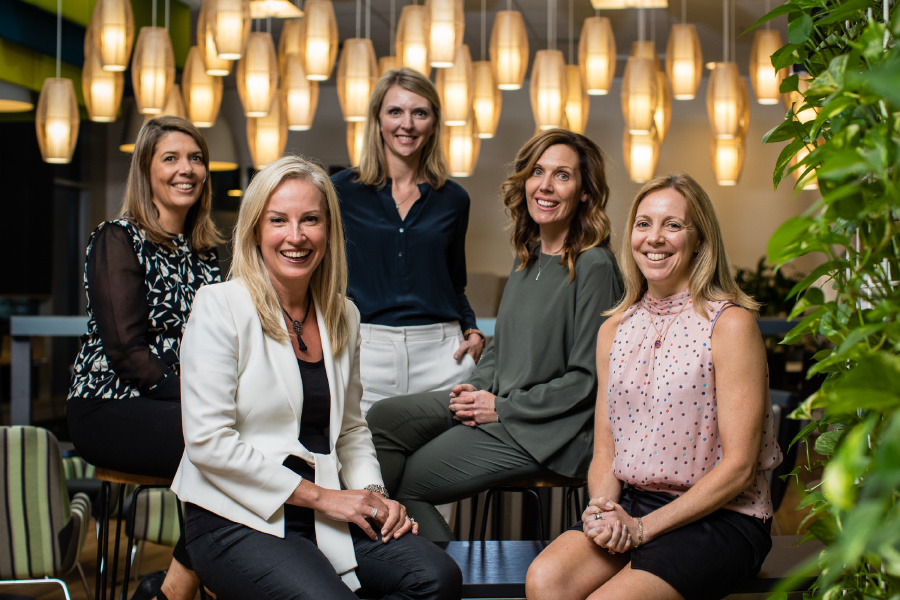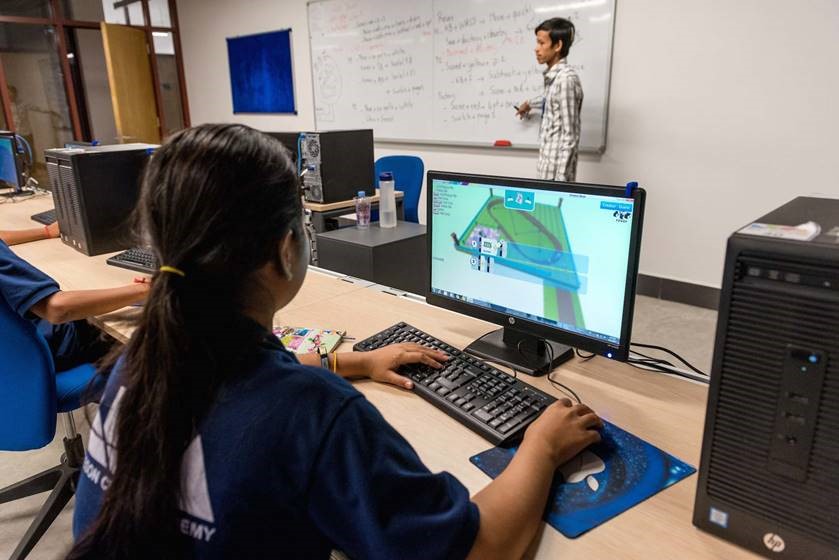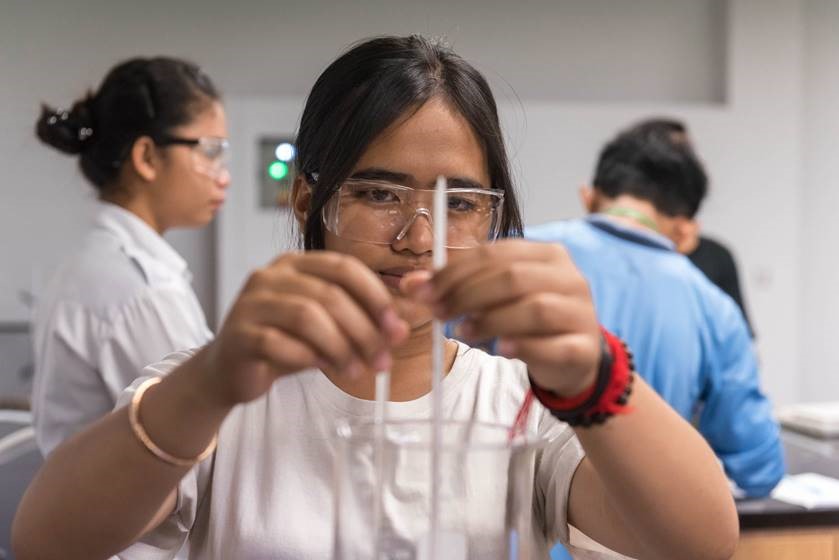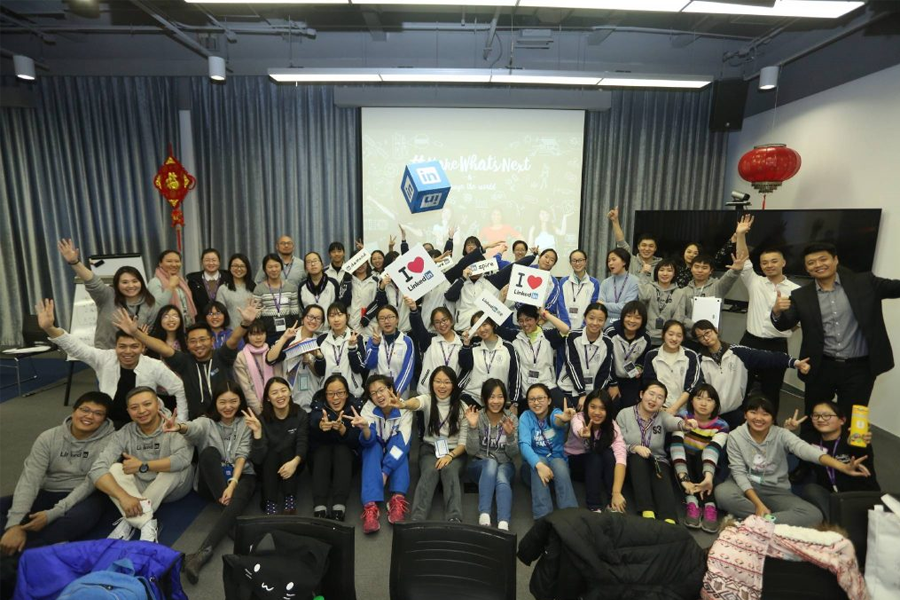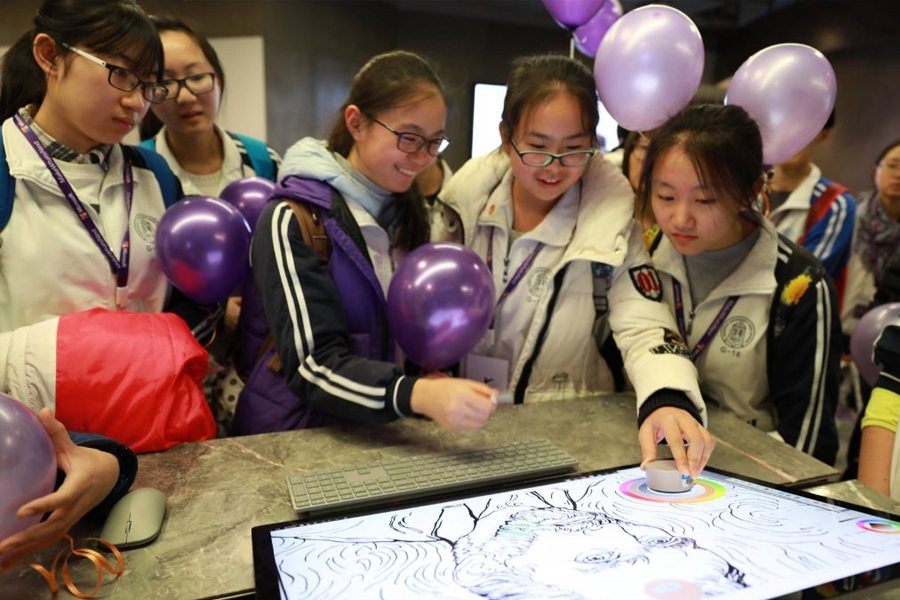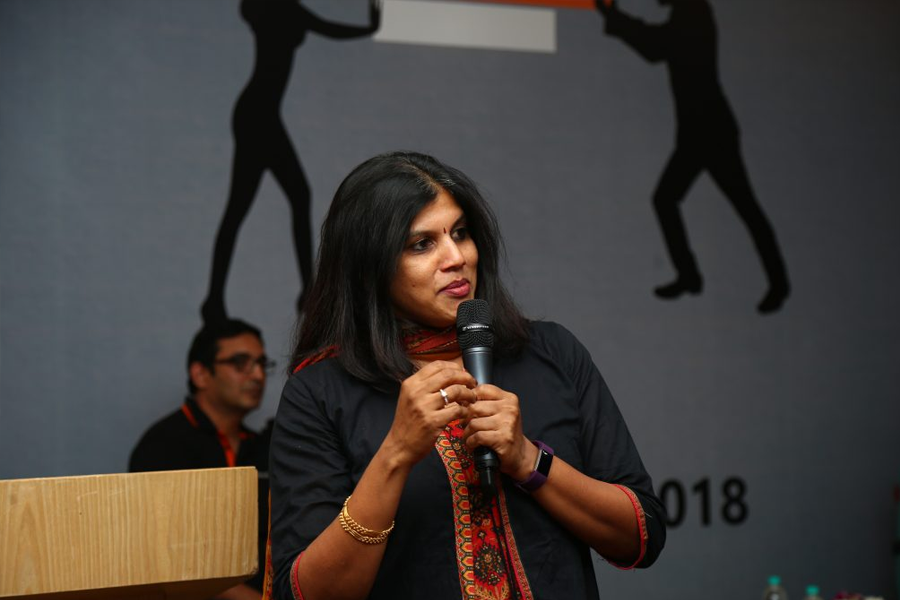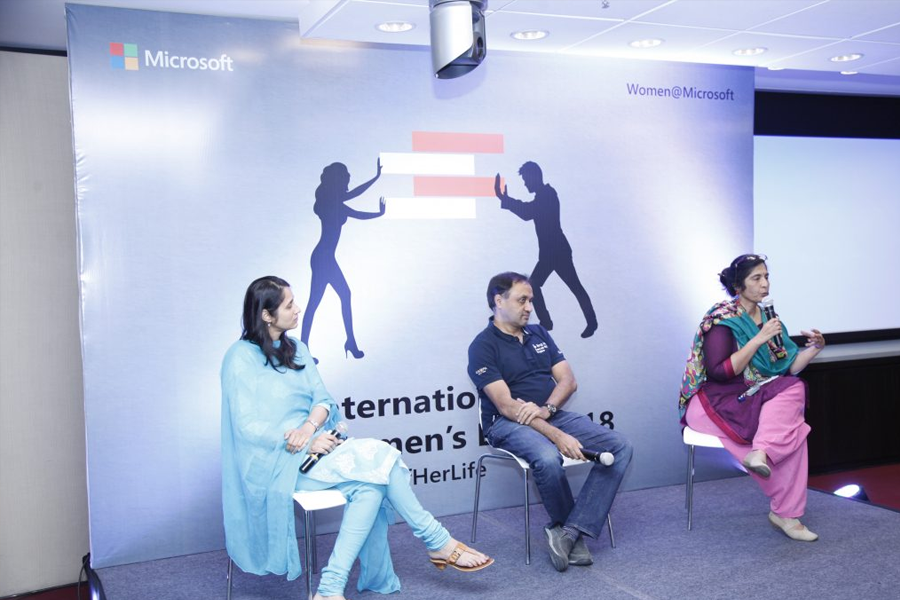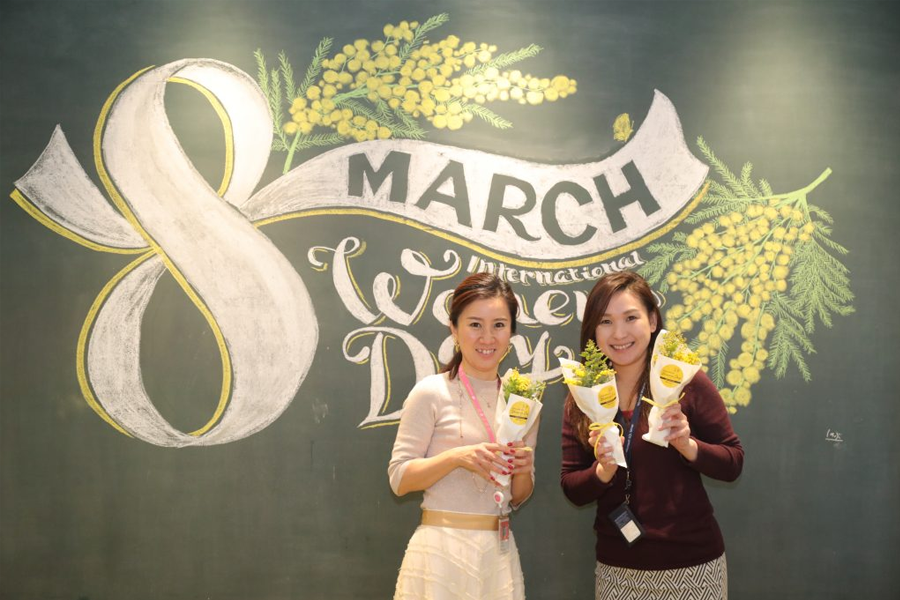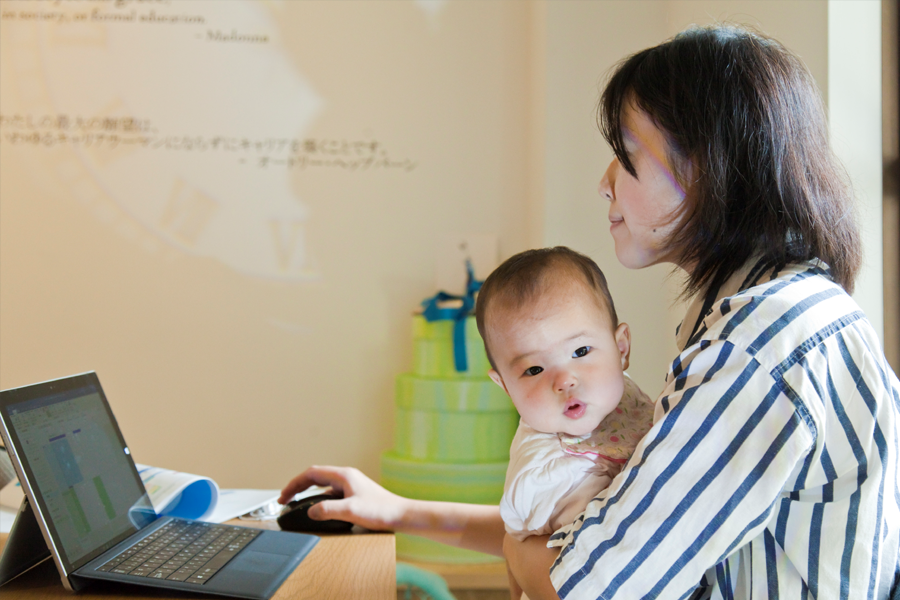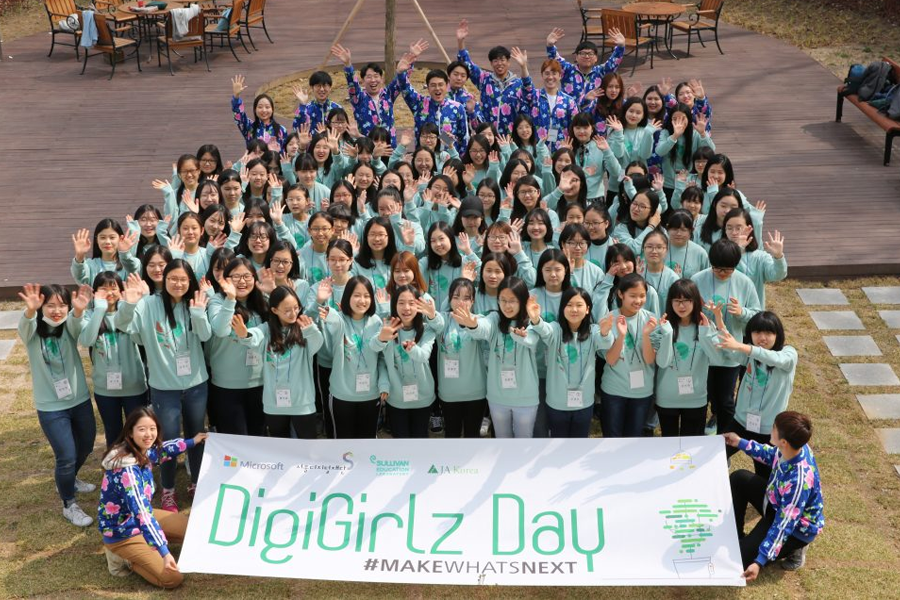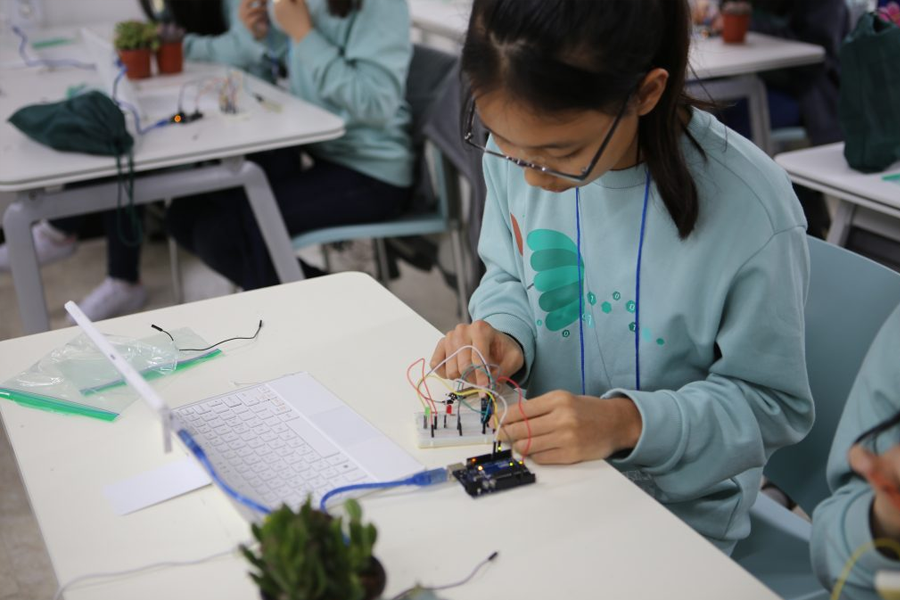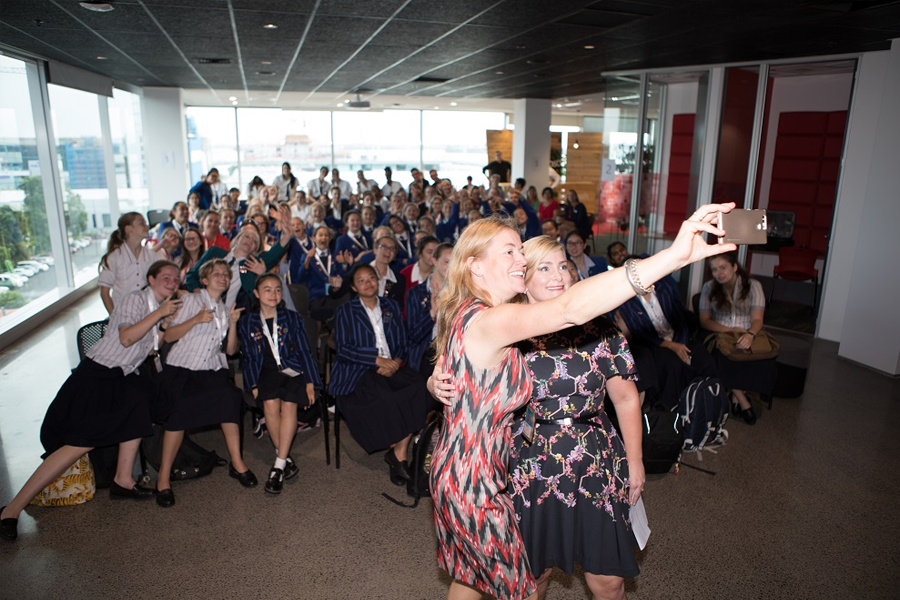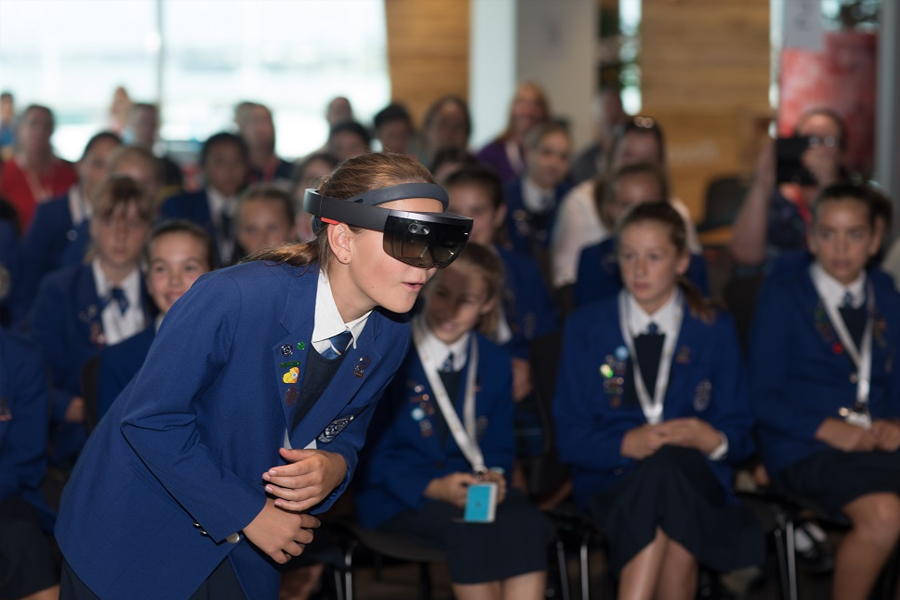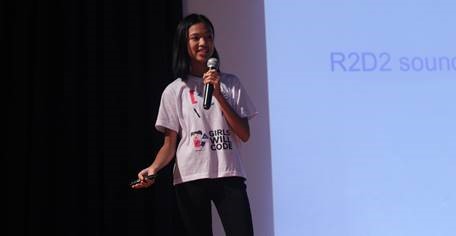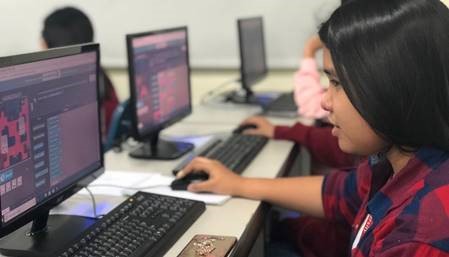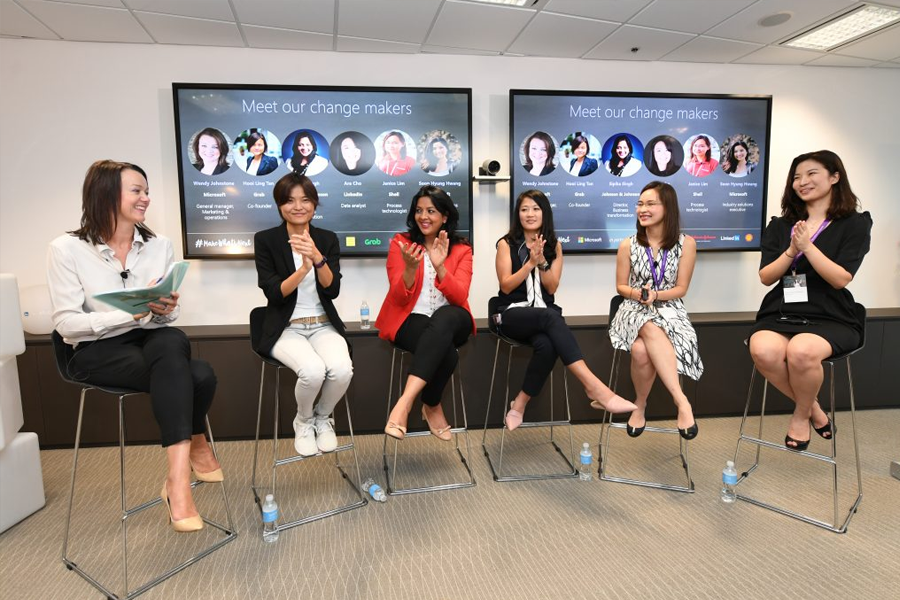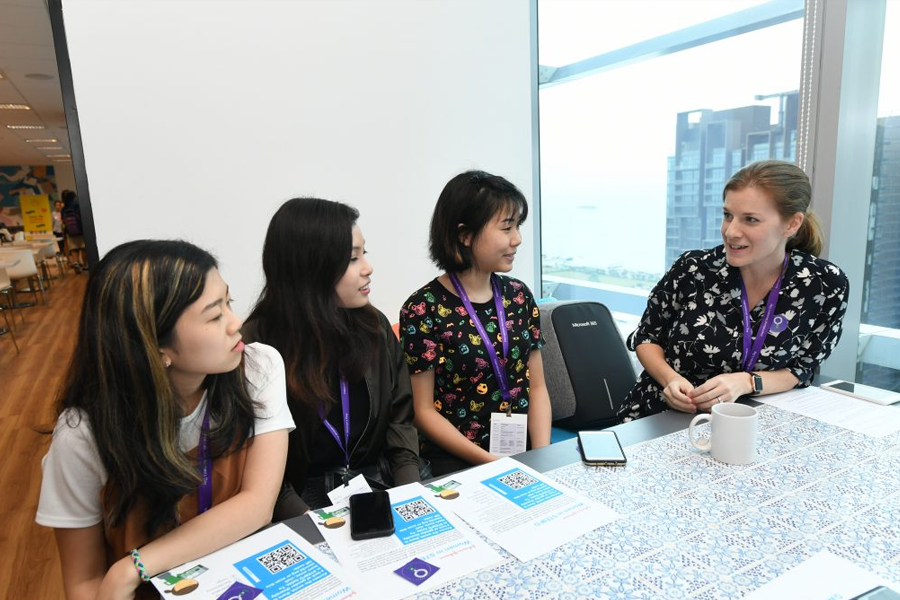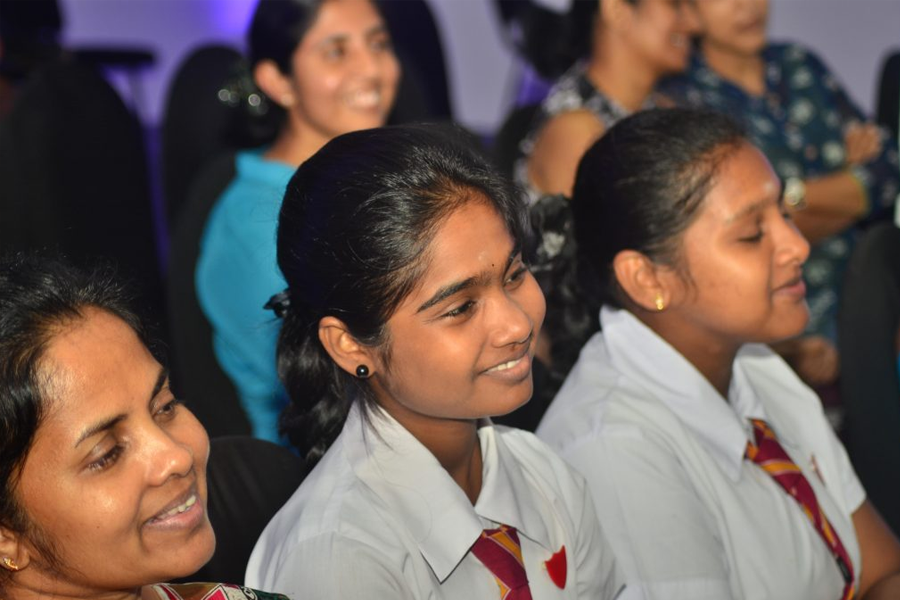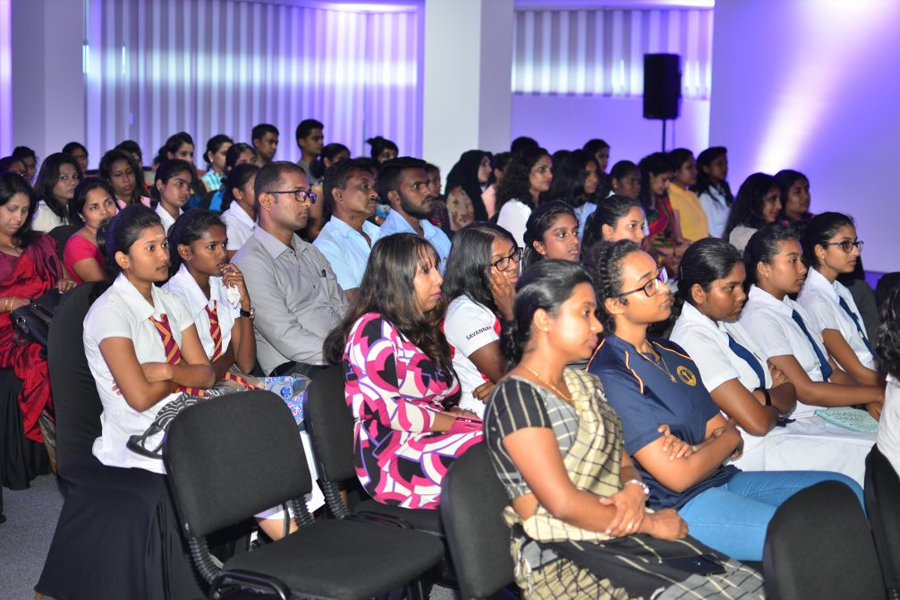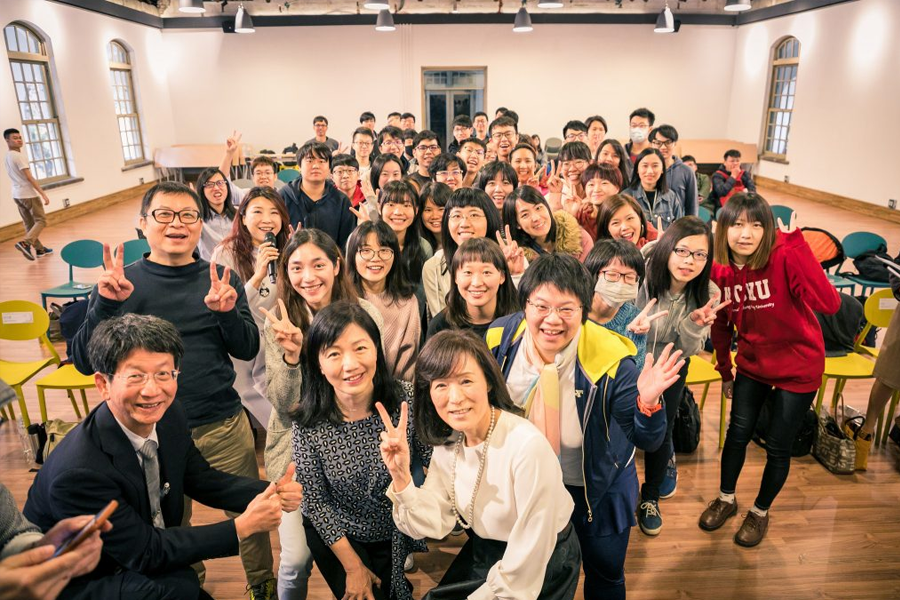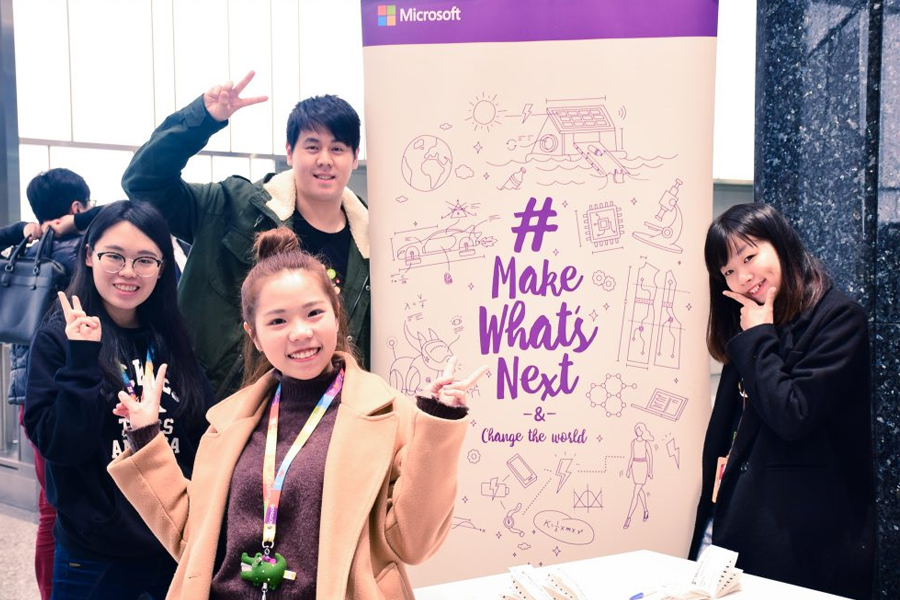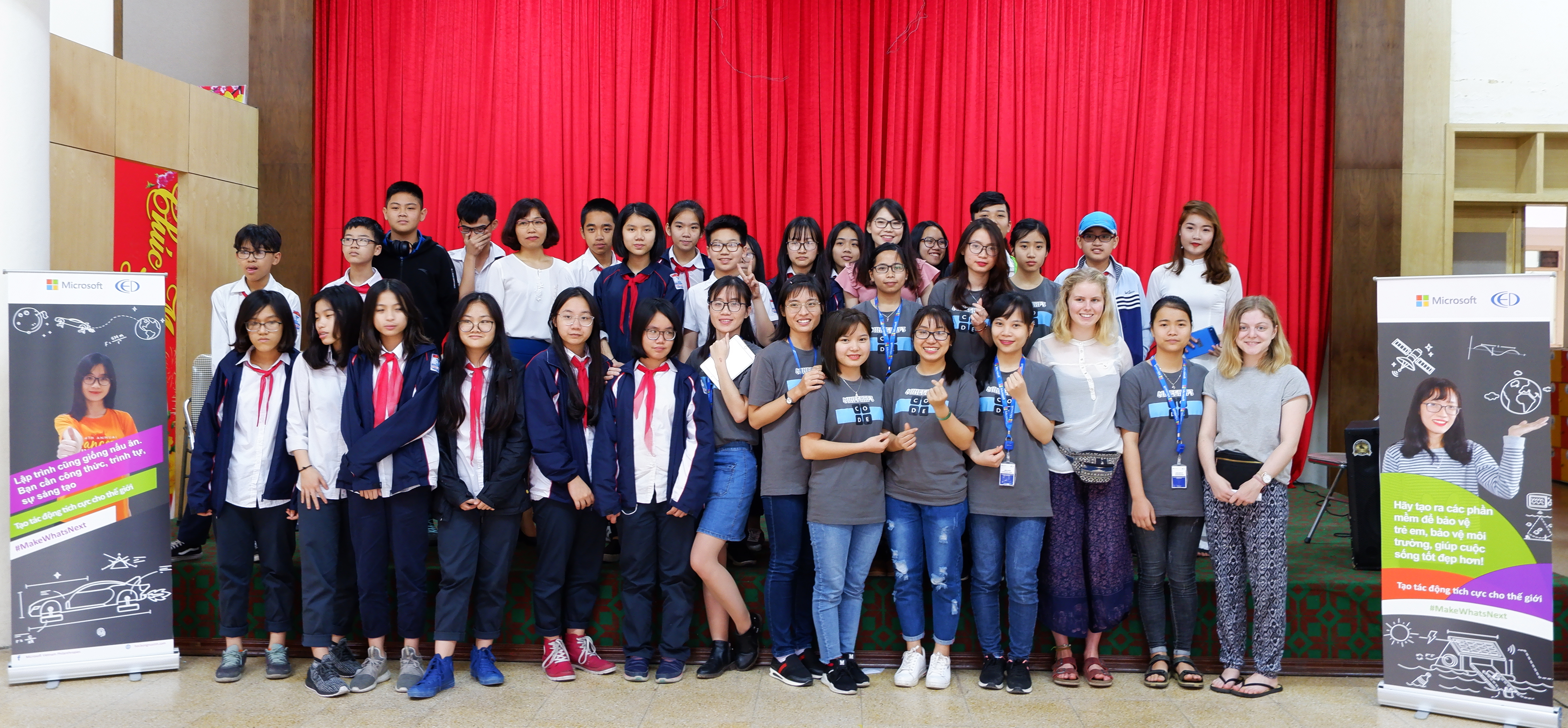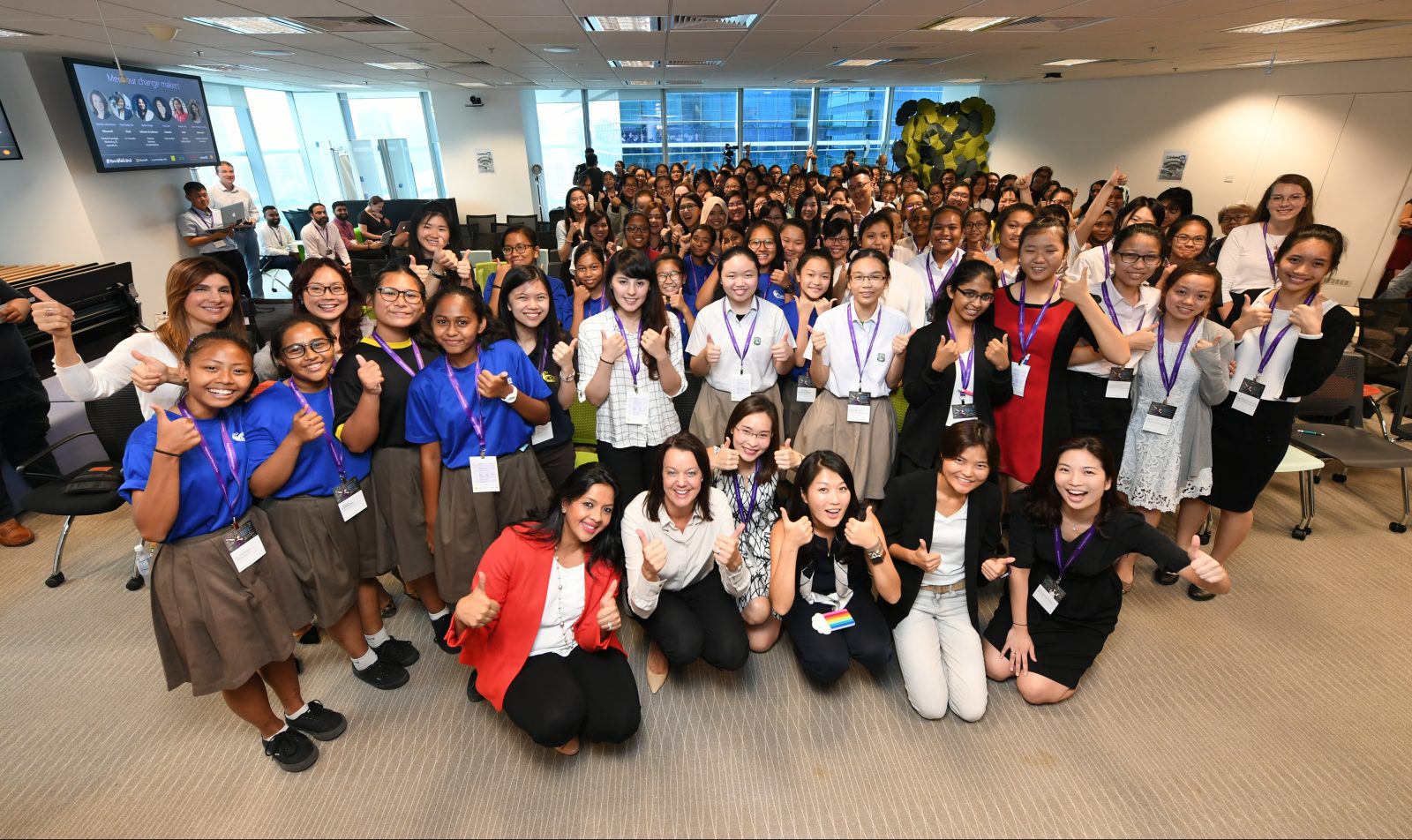
Girls in STEM, Women in Tech, careers
To Asia’s girls pursuing STEM: “Be brave!”
What is the best advice to give a room full of 100 schoolgirls who are wondering what direction they should take, and what decisions they should make, in life?
Wendy Johnstone uses just two words: “Be brave”.
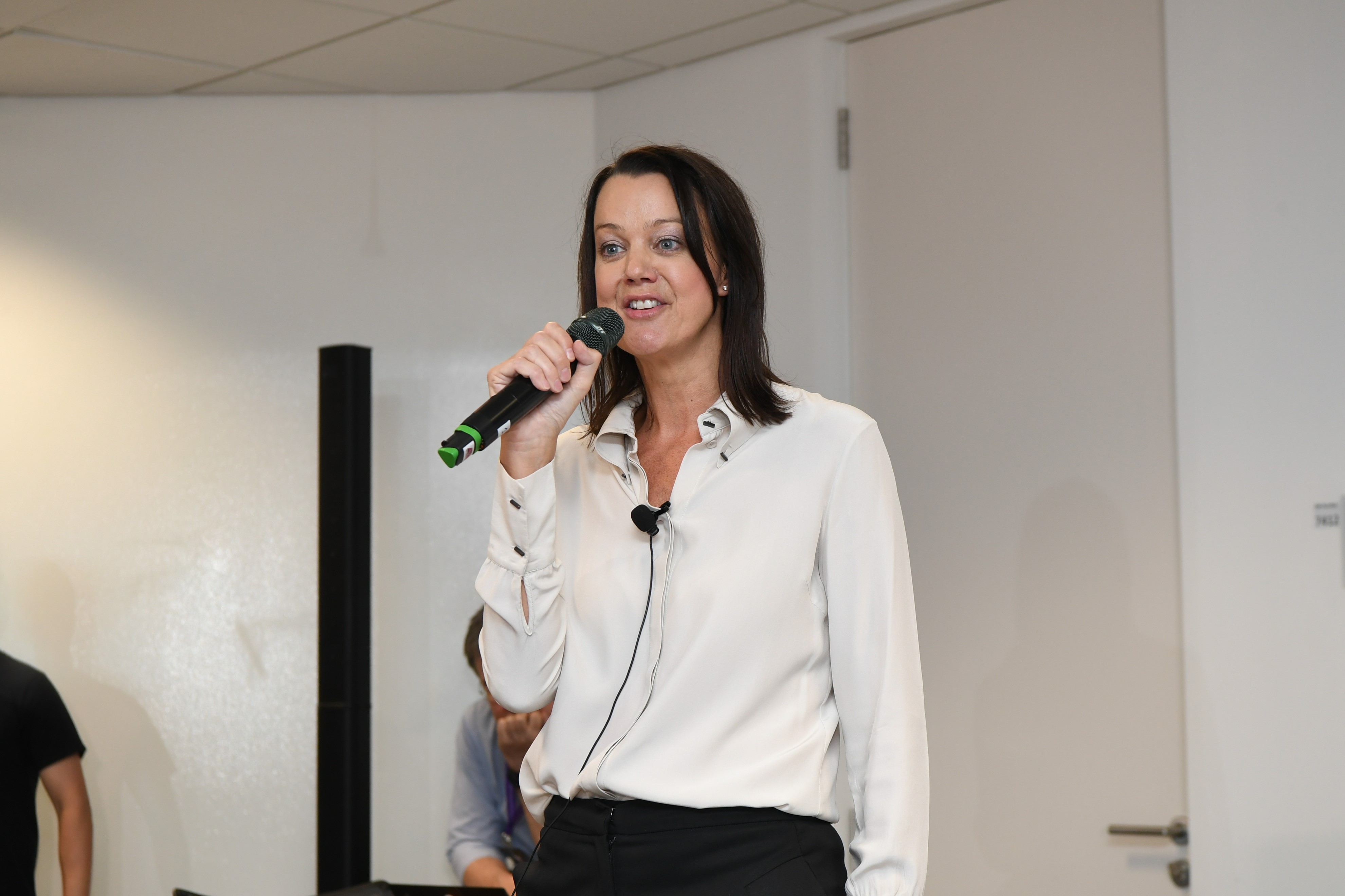
Wendy (pictured above) is General Manager of Marketing and Operations for Asia Pacific with Microsoft – a global company whose mission is “to empower every person and every organization on the planet to achieve more”.
She relishes the many challenges thrown up by her senior Singapore-based regional job. It is an exciting and rewarding career. But at a recent DigiGirlz gathering, held in honor of International Women’s Day, Wendy admitted that she had no grand career strategy to get there.
“I have been working in the technology industry for 27 years. I was never deliberate about it. I never had a plan to work in technology. To be honest, I really stumbled into technology. But once I was there, I didn’t want to go anywhere else,” she told the girls who came to hear and learn about skills in STEM – Science, Technology, Engineering and Maths.
“I didn’t have a computer science degree, and you don’t have to have a computer science degree to work in STEM or to work in tech. What you need to be able to do is to solve problems. You really, really need to have a passion for problem-solving and to do that with technology.
“You need to have a passion for creativity. You need to be able to think outside of the box. And, you need to love to collaborate. STEM is not about doing something on your own. It is about how you really harness all the diverse talent that is around you to solve a problem and to change the world.”

Microsoft’s DigiGirlz program is designed to provide girls, as well as educators, with a better understanding of what careers in technology can be like. Right now, many more boys than girls are studying STEM subjects and many more men than women work in the tech sector. UNESCO’s Institute for Statistics (UIS) estimates only 35% of all students enrolled in STEM-related fields of study are female [1]. DigiGirlz is designed to address this imbalance by exposing girls to female role models, and engaging girls into hands-on activities where they use STEM skills to solve real-world challenges. This approach has been identified by research conducted by Microsoft as critical to build young girls’ interest and confidence that they can succeed in STEM.
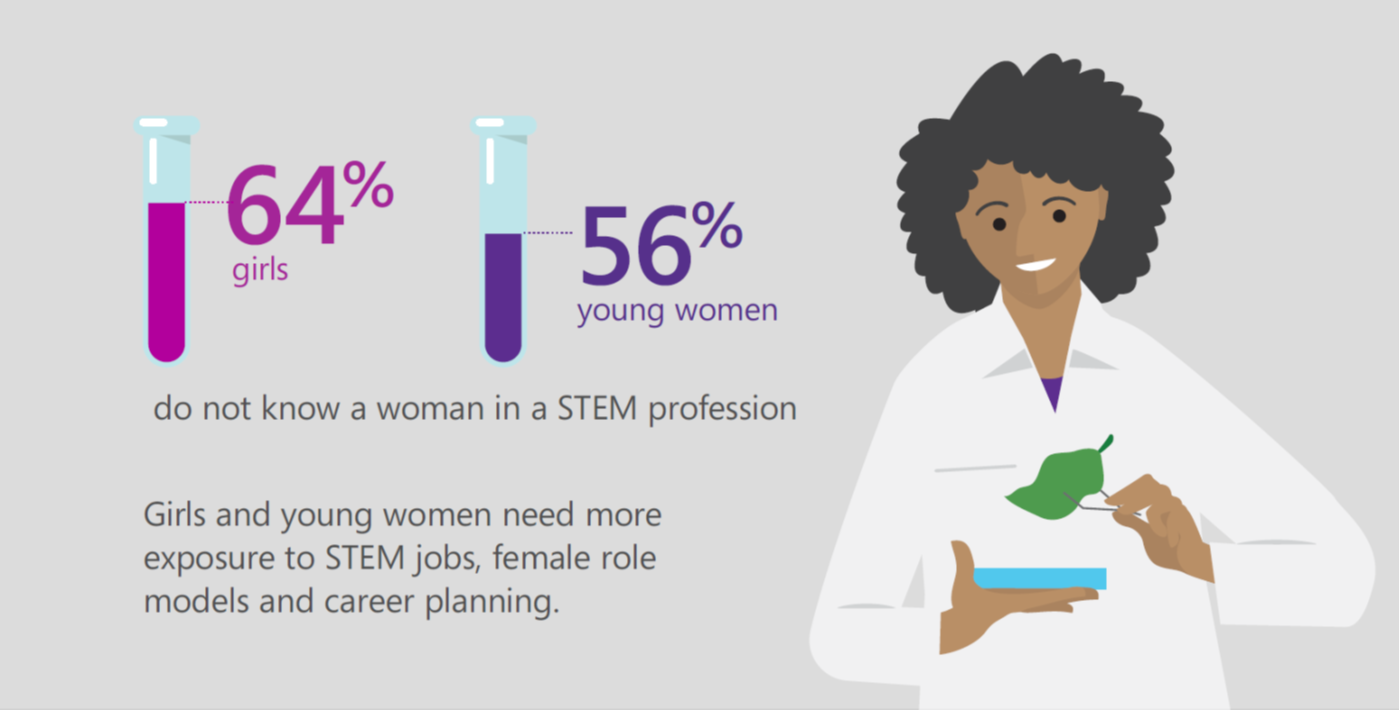
“The stereotype that only men can excel in the tech and engineering industries is wrong. In this digital age, the future career opportunities will be in STEM, and we have a responsibility to encourage and support young women to follow this path,” Wendy said. “By choosing a career in STEM, young women and men will achieve their true potential.”
She also pointed to the achievements of many women who have excelled in this area through the years and despite the odds.
“International Women’s Day has been around since 1911. It is all about championing the cause of women. But just as important, it’s about the success and the amazing things that women have done and are doing today. For over 300 years, women have been making their mark in STEM.
“Women are really changing the world. They have passion. They have determination. They didn’t listen to stereotypes. They didn’t listen to people who said: ‘Women can’t do this.’ They had really good ideas – ideas that can change the world. We want to open up the possibilities of STEM to you. Anything is possible.”
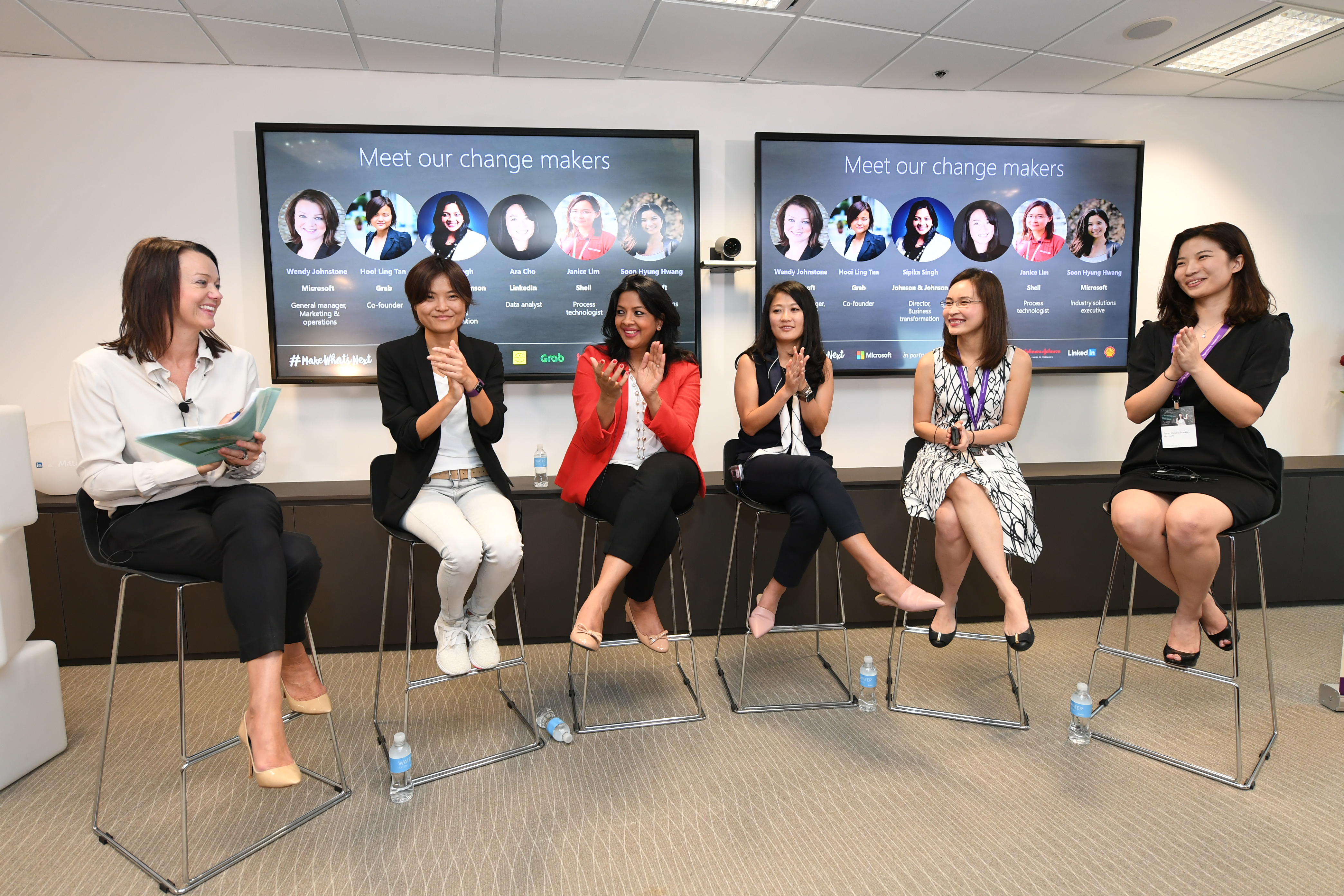
The DigiGirlz event was held at the Singapore headquarters of LinkedIn where Wendy moderated a panel of high achieving women – Hooi Ling Tan, Co-Founder from Grab; Sipika Singh, Director of Business Transformation, Johnson & Johnson; Ara Cho, Data Analyst from LinkedIn; Janice Lim, Process Technologist from Shell, and Soon Hyung Hwang, Industry Solutions Executive from Microsoft.
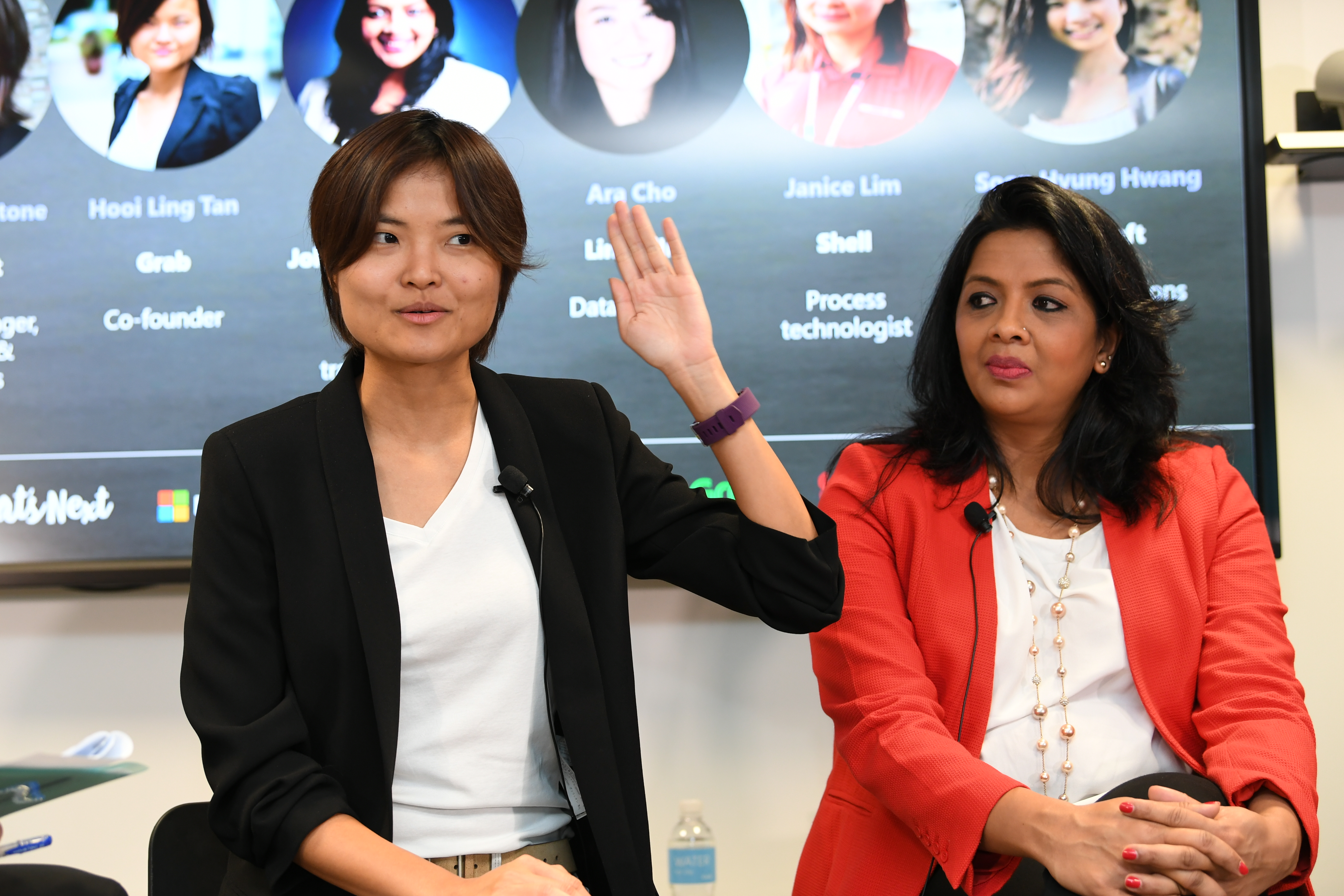
Hooi Ling said diversity was central to the strength of Grab, which has fast grown into a major disruptor in the taxi and other sectors across Southeast Asia. “We care about diversity,” she explains. “Whether it is gender, whether it is what country you come from, whether it is age. Why it matters is because once you have diverse points of views you have different opinions and different ways of solving one problem.”
Sipika also pointed out that the spending power of women is increasingly important in the consumer world and that companies need to heed their points of view to better serve their customers. “If women are contributing so much, it just makes sense for women to be part of that innovation process.”
Later the conversation turned to the subject of what skills and attributes will be key to career success in the future, knowing that many of the jobs that young people will have tomorrow do not exist today.
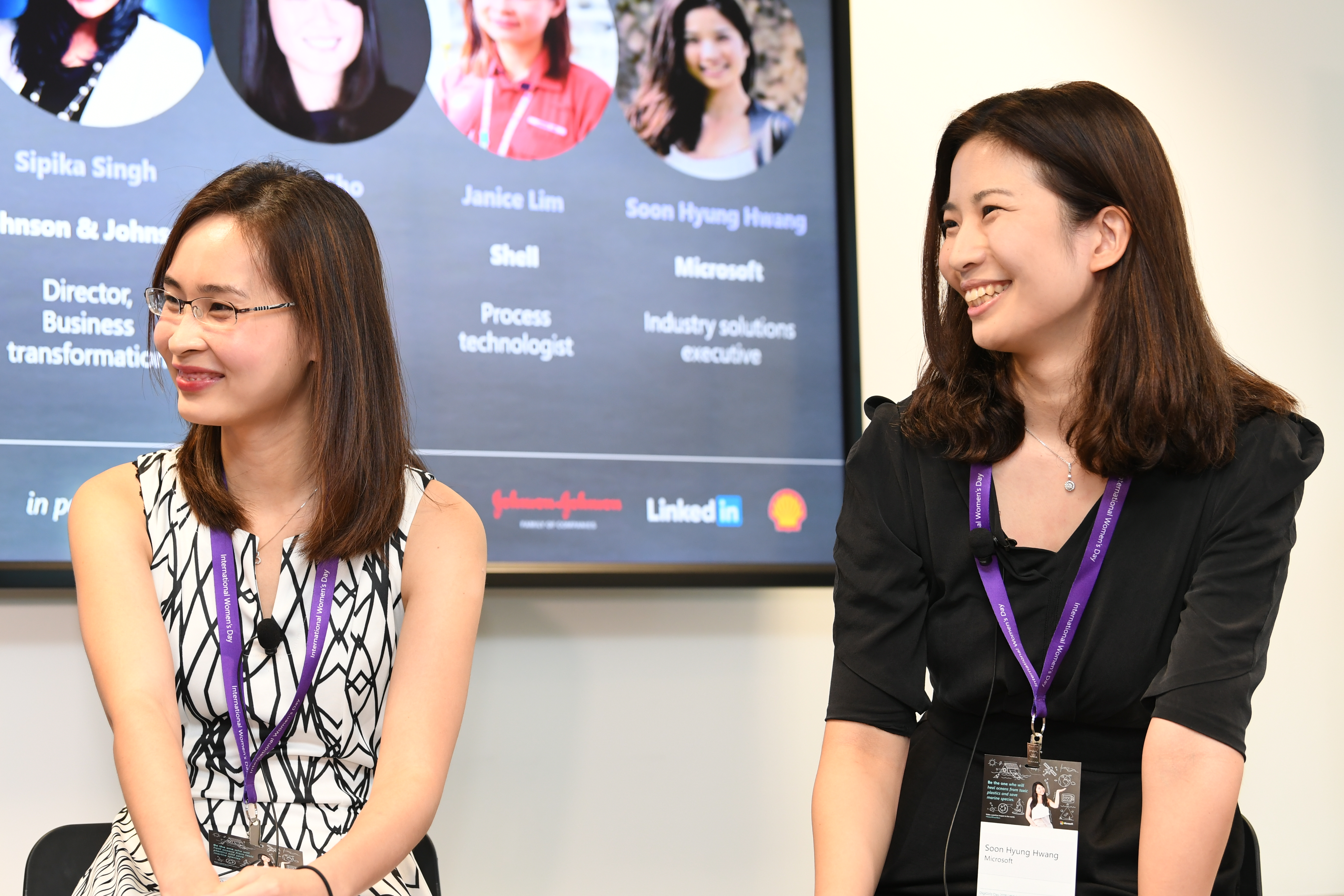
Soon Hyung nominated “originality”. “No one can take your combination of experiences, strengths, weaknesses, and passions away from you – no matter how much the world changes. Everyone is unique.”
Janice said: “My advice would be not to conform to stereotypes and not to accept what people regard as the norm. Because there is no such thing as a norm, right? Always be innovative, and think about how you can improve the world.”
Ara counseled the girls not to worry too much about what skills they have or do not have. “It is really easy to feel paralyzed and overwhelmed and say: ‘Oh my God, how am I going to learn all these things?’ “She recounted how she learned some coding skills in her present job when she needed to. “Don’t be paralyzed by fear. Pick one (skill). Make something with it and move on to the next one.”
Sipika also suggested that some vocational skills learned today might not be valued in the future as technology moves ahead. For her, what really counts is “attitude”. “Be open, be fearless. Move out of your comfort zone. It is your attitude that counts. If you stretch yourself that will be your path to success.”
Hooi Ling urged the girls to follow their passions and seek out like-minded collaborators and mentors. “More often than not the only thing that will hold you back in your life is yourself. Remember that. So when you feel challenged, when you feel that you can’t do something, say: ‘Hey, change that mindset – I am, going to do that!”
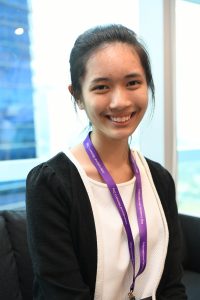
The last word goes to one of the audience members. Nadya Vijay, 15, from Singapore’s Clementi Town Secondary School, said she had learned a lot about how women can change the world. This had made her think and it “gave her heart” to hear about what women in STEM are achieving. She’s still not sure what she will do in her future career. But after hearing about so many strong and inspirational women, she knows one thing: “I will be brave”.
DigiGirlz Singapore is part of the 60+ events and programs that Microsoft has been running at its offices, stores, as well as in schools and with public and private partners across Asia. We kicked off these exciting events on International Women’s Day and they will roll on until the end of May. We are encouraging more than 5,000 young people, including 4,100-plus girls and women, to pursue studies and careers in Science, Technology, Engineering and Math (STEM) through showcasing role models and hands-on activities.
Here’s a peek of the #MakeWhatsNext events that already happened across Asia:
[1] UNESCO, Cracking the code: Girls and women’s education in science, technology, engineering and mathematics (STEM)





